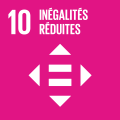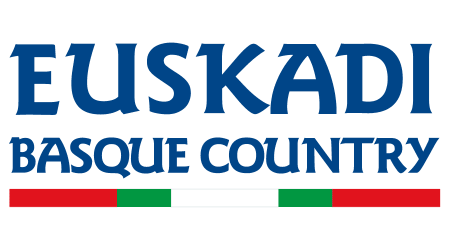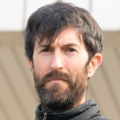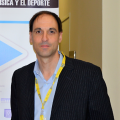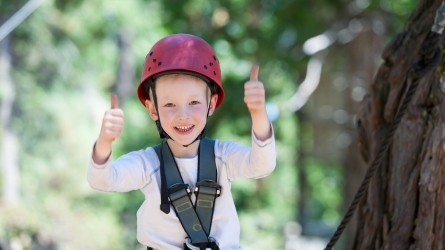
Una infancia protegida en el deporte: retos y buenas prácticas
Description
Sport is an essential element for the integral development of children, as it is fundamental for learning and the transmission of values, as well as an extraordinarily valuable tool that makes it possible to make visible the need to continue working on child protection. In this context, several steps have been taken in recent years, especially following the implementation of the LOPIVI law and, with it, the emergence of the figure of the protection delegates in sport. However, there are still many changes to be made in this area. Thus, the aim of this course is to analyze the challenges and good practices that are being carried out in this context. To this end, this Summer Course will bring together different experts in the protection of children in sports and will analyze their proposals in different sporting contexts.
This Summer Course is designed for all professionals working with children in sports, from schools to clubs to all organizations that understand the educational value of sports and their potential for the protection of children.
Objectives
Conocer la situación actual de la protección de la infancia en el deporte en el nuevo contexto LOPIVI (Ley Integral de Protección a la Infancia y la Adolescencia frente a la Violencia).
Conocer la buenas prácticas llevadas a cabo en el contexto deportivo enmarcadas en la protección de la infancia.
Conocer los retos que tiene el deporte para convertirse en herramienta estratégica para la protección de la infancia.
Activity directed to
- All public
- University student
- Students not from university
- Teachers
- Professionals
Program
29-06-2023
Registro / Erregistroa
Institutional Opening session. Speaking order:
- Sergio Seoane Parra | UPV/EHU - Director de Estudiantes, Movilidad y Deportes del Campus de Bizkaia
- Dorleta Ugalde Usandizaga | Gobierno Vasco - Dirección de Actividad Física y Deporte - Gestora deportiva
- Itxaso Erroteta Sagastagoya | Ayuntamiento de Bilbao - Concejala de Juventud y Deporte y Presidenta de Bilbao Kirolak
“Retos de la protección a la infancia en el mundo del deporte“
- Iñaki Alonso Romero | Responsable/Director de Kunina Sport and Education consulting (Participation by zoom)
“La necesidad de abordar la violencia en toda su complejidad: múltiples tipos de violencia y cómo se solapan en el deporte“
- Montserrat Martín Horcajo | Universidad de Vic - Profesora Titular
Break
“Los límites en el deporte. Una cuestión de buen trato“
- Angela Domínguez Pérez | Oro, Plata, Bronce - Presidenta de la asociación
Round table: “Hablemos de retos y buenas prácticas en materia de protección a la infancia en el deporte“
- Ainhoa Azurmendi Echegaray | UPV/EHU - Profesora
- Julio Calleja | UPV/EHU - Profesor Pleno
- Juan Aldaz Arregui | UPV/EHU - Profesor
- Nahia Idoiaga Mondragon | UPV/EHU - Uda Ikastaroaren Zuzendaria
Directors

Mari Mar Boillos Pereira
Universidad del País Vasco/Euskal Herriko Unibertsitatea, Irakaslea
Mari Mar Boillos (Bilbao, 1986) Lcda. en Filología Hispánica (UPV/EHU), Máster en Lingüística Aplicada (Universidad Antonio de Nebrija) y en Formación del Profesorado (Universidad de Deusto) y Doctora Internacional en Innovación educativa y aprendizaje a lo largo de la vida (Universidad de Deusto - 2016). En la actualidad, imparte clases de formación del profesorado de lengua en la Facultad de Educación de Bilbao de la UPV/EHU. Ha impartido seminarios de formación para el profesorado de lenguas y ha participado como ponente en congresos internacionales en torno a la innovación educativa. Asimismo, acumula experiencia como formadora de profesorado (UNIR, UIMP...) y ha realizado estancias en diversas universidades internacionales (Holanda, Emiratos Árabes, EEUU, etc.). Actualmente, miembro del equipo de investigación LAIDA.
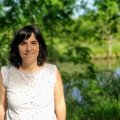
Nahia Idoiaga Mondragon
UPV/EHU
Dr. Nahia Idoiaga Mondragon holds the PhD in psychology (with honour), degrees in psychology and educational psychology and two master’s degrees (Teachers Training & Research Methodology). Framed on social and educational psychology she has researched and published impact articles on topics related to socio-educational inclusion, education, feminism and health. In the field of research, she is part of the research group KideON. She is also part of several projects, most of them European funded, working on the inclusion of young people and vulnerable groups. At a teaching level, she is proffesor in the Department of Evolutionary Psychology and Education and in her teaching subjects is implementing IKD methods (problem based learning and dynamic and cooperative learning). In addition, she is PhD. Co- director enrolled in the Doctorate programmes in Psychology and Psychodidactics at the UPV/EHU. She is also Vice-Dean of Undergraduate, Postgraduate and Final Degree Projects at the Faculty of Education in Bilbao.
Speakers
Doctor en Sociología y Máster en Evaluación de Programas y Políticas Públicas y Profesor Agregado del Departamento de Sociología y Trabajo Social. Mis líneas de investigación principales tienen por objeto el estudio del fenómeno deportivo desde una perspectiva de investigación evaluativa de programas y políticas públicas y con un enfoque comprensivo que trata de vincular el conocimiento científico con la utilidad social.

Iñaki Alonso Romero
Licenciado en derecho. postgrado de innovacion deportiva. experto internacional en ayuda humanitaria. 21 años de trabajo en prevención de violencia contra la infancia .Ha desarrollado su tarea profesional en diferentes contextos geográficos: asia, africa y España. En los ultimo 11 años se ha especializado en la tarea de incidencia política centrada en los derechos de infancia, la realización de informes sobre las diferentes tipologías de violencia contra la infancia y la labor de generación de propuestas de marcos de protección para la infancia. En estos trabajos ha estado vinculado profesionalmente a entidades como Save the Children, UNICEF, ACNUR. Hace 4 años comenzó su andadura de trabajo como Responsable de Protección a la infancia del Athletic Club, para construir la primera política de protección a la infancia de una entidad deportiva profesional. Actualmente como máximo responsable de una entidad consultora social sigue tratando de extender la necesidad de que la infancia cuente con espacios protectores alli donde se encuentre.
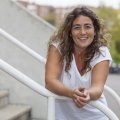
Ainhoa Azurmendi Echegaray
Sports consultant at Avento and professor of Sports Psychology at the Faculty of Psychology of the UPV/EHU. PhD in Psychology, Master in Equality of women and men and University Specialist in Psychology of Physical Activity and Sport. Specialized in the incorporation of the gender perspective in sport. She has developed projects related to this subject for public institutions at territorial, regional, state and international level. She has been the keynote speaker in the I and II State Conferences on Women and Sport held in 2017 and 2019 and has participated with papers in the last 4 of the 8 World Congresses Women and Sport held to date. She has carried out pioneering work on the prevention of sexual violence against women in sport, designing a specific Guide for Emakunde/Basque Women's Institute in 2015, or developing applied work in Real Sociedad de Fútbol SAD since 2017. Since 2021 she is an online facilitator for Spanish-speaking learners in the FIFA Guardians program for safeguarding in sport, being one of the five people selected internationally for the development of this task.
APPLIED SPORT- PERFORMANCE SCIENTIST / STRENGTH AND CONDITIONING COACH. Bsc in Sport Sciences at Basque University (Spain). Dg in Human Sports Movs (Erasmus) (Wales). Ph.D. in Sport physiology (Spain). Master in High Performance Sport (Spanish Olympic Comitte). Master in research in Sports Sciences. Master in strenght and conditioning and funcional readaptation. Post doc at: Brunnel University (U.K), Faculty of Kinesiology (Croatia), Catholican University in Melbourne (Australia) and Rush University Medical Center, Chicago (USA). Calleja is also national coach: basketball, athletics and swimming. Head of S & C of Spanish National basketball teams (U-15,-18,-20, Senior B team) in 2 European FIBA Championships and 1 FIBA World Cup (96-02). At Tenerife basketball (ACB - Champions Cup, 02-03). Julio has been S & C of top athletes: (Eneko Acero, Surfing European championship, Alberto Iñurrategui (World top Class Hymalayist), Clemente Alonso (Top Ironman triathlete) and Yahaira Aguirre
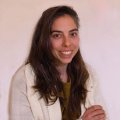
Angela Domínguez Pérez
Presidenta de la asociación Oro Plata y Bronce y licenciada en CAFyD, especializada en Coaching Deportivo, es educadora deportiva y entrenadora. Coordinadora de proyectos en OPyB desde 2016 tiene como objeto concienciar a los entornos deportivos de las diferentes formas de violencia y abuso que se producen en el deporte, promoviendo el buen trato y desarrollando otros modelos de enseñanza deportiva. Desarrolla formaciones y talleres específicos en materia de protección y buenas prácticas con federaciones y clubes deportivos. Ha participado en el III Congreso Estatal de Mujeres y Deporte los días 3-4 de marzo de 2023 Actualmente es entrenadora de gimnasia artística del proyecto sociodeportivo llevado a cabo en Chad (África) de la Fundación Ramón Grosso en colaboración con el CGA Pozuelo.
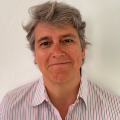
Montserrat Martín Horcajo
Doctora en sociología del deporte por la Brunel University – Reino Unido. Es profesora titular de sociología del deporte en el Grado de CAFD e investigadora del grupo de Investigación en el Deporte y la Actividad Física (GREAF) de la Universitat de Vic-Universitat Central de Catalunya. Desde el 2012 que estudia y analiza las violencias sexuales contra infancia y juventud en el deporte. En los últimos años, Martin ha formado parte de dos proyectos europeos que abordan las violencias contra menores en el deporte. El primero, Voices for truth and dignity: Combatting sexual violence in European sport through the voices of those affected (2016-2018) en el que se trabajó de forma cualitativa con supervivientes; el segundo proyecto, Child Abuse in Sport: European Statistics (2019-2021) en el que se hizo un estudio cuantitativo de la prevalencia de cinco tipos de violencias contra menores dentro y fuera del deporte. Su interés actualmente es crear conocimiento para combatir las violencias contra menores en el deporte, con especial énfasis en la violencia sexual. Es coautora de la guía, La violencia sexual en el deporte. Guía para personas adultas (Re)conocer, hablar y actuar (2020). Consell Català de l’Esport- Generalitat de Catalunya.
Registration fees
| Face-to-face | Until 29-06-2023 |
|---|---|
| 5,00 EUR |
| Live online | Until 29-06-2023 |
|---|---|
| 5,00 EUR |
Venue
Bizkaia Aretoa-UPV/EHU
Avenida Abandoibarra, 3. 48009- Bilbao
Bizkaia
Bizkaia Aretoa-UPV/EHU
Avenida Abandoibarra, 3. 48009- Bilbao
Bizkaia
Sustainable development goals
Agenda 2030 is the new international development agenda approved in September 2015 by the United Nations. This agenda aims to be an instrument to favour sustainable human development all over the planet, and its main pillars are the eradication of poverty, a reduction in equality and vulnerability and fostering sustainability. It is a unique opportunity to transform the world up to 2030 and guarantee human rights for all.

3 - Good health and well-being
Guarantee a healthy life and foster the well-being of all people of all ages. Key issues: universal healthcare coverage, sexual and reproductive health, reduction in the number of road accident casualties, pollution and chemical products, reduction in maternal and neonatal mortality, the end of epidemics such as AIDS, combating hepatitis and other water-borne diseases, drug and alcohol prevention, control of tobacco.
More information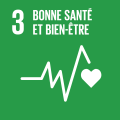
4 - Quality education
Guarantee quality education that is inclusive and equitable and foster opportunities for lifelong learning for everyone. Key issues: free-of-charge, equitable and quality education, access to higher education and training on an equal basis, education for sustainable development, suitable education centres for persons with disabilities, and safe, non-violent and efficient learning environments.
More information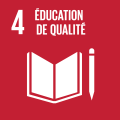
5 - Gender equality
Achieve gender equality and empower all women and young girls. Key issues: the end of all forms of discrimination and violence, recognition of unpaid care and domestic work, shared responsibility, equal opportunities, full and effective participation in reproductive rights, equal rights vis-à-vis economic resources, access to land and other assets and ownership.
More information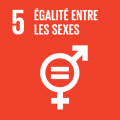
10 - Reduced inequalities
Reduce inequality in countries and between them. Key issues: promotion of the social, economic and political inclusion of all people, equal opportunities, fiscal, wage and social protection policies to favour equality, migration and the policies that affect it, official assistance for the development, regulation and supervision of world institutions and markets.
More information